Sphynx cats are affectionate, smart, and don’t shed. However, there are some issues with the breed as well! Here are some of the most common complaints about Sphynx cats:
Sphynx cats are not hypoallergenic and may trigger your allergies even more than your average cat. They need regular baths and skincare and may leave grease stains on your furniture. They also eat more than other cats and tend to be more expensive to care for.
In this article, we’ll discuss seven common complaints about Sphynx cats to help you determine whether this breed is right for you.
#1: Sphynx Cats aren’t Allergy-Friendly
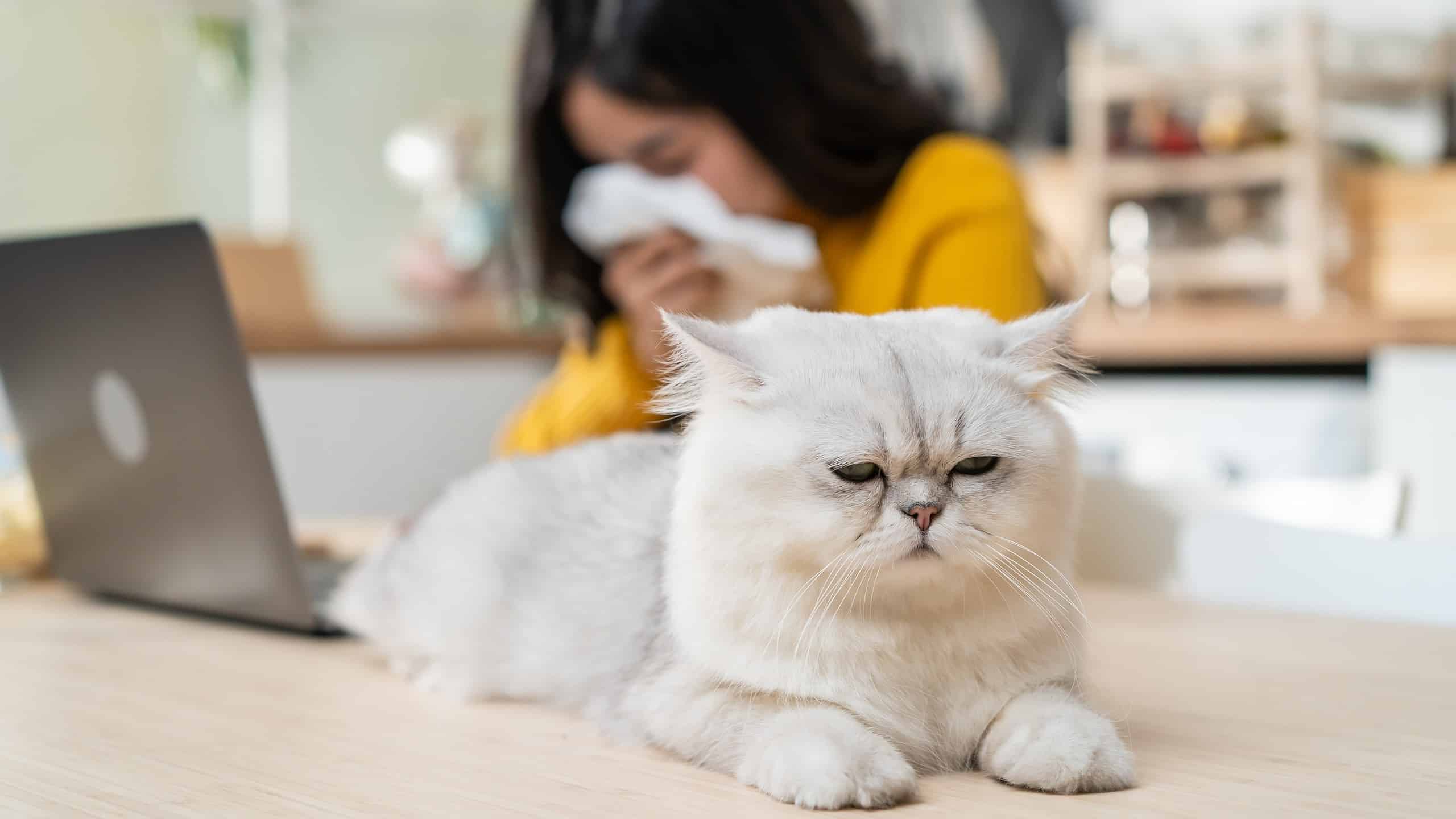
If you’re allergic to cats, a Spynx may set off your allergies even more than a furry cat.
©Hananeko_Studio/Shutterstock.com
Contrary to popular belief, it isn’t just cat fur that causes cat allergies. You may be allergic to their dander (dead skin cells), saliva, or urine.
A common complaint about Sphynx cats is that they trigger allergies worse than cats with fur. This is because they have no fur to trap dander, so more of it gets into the air.
#2: They Leave Grease Stains Around the House
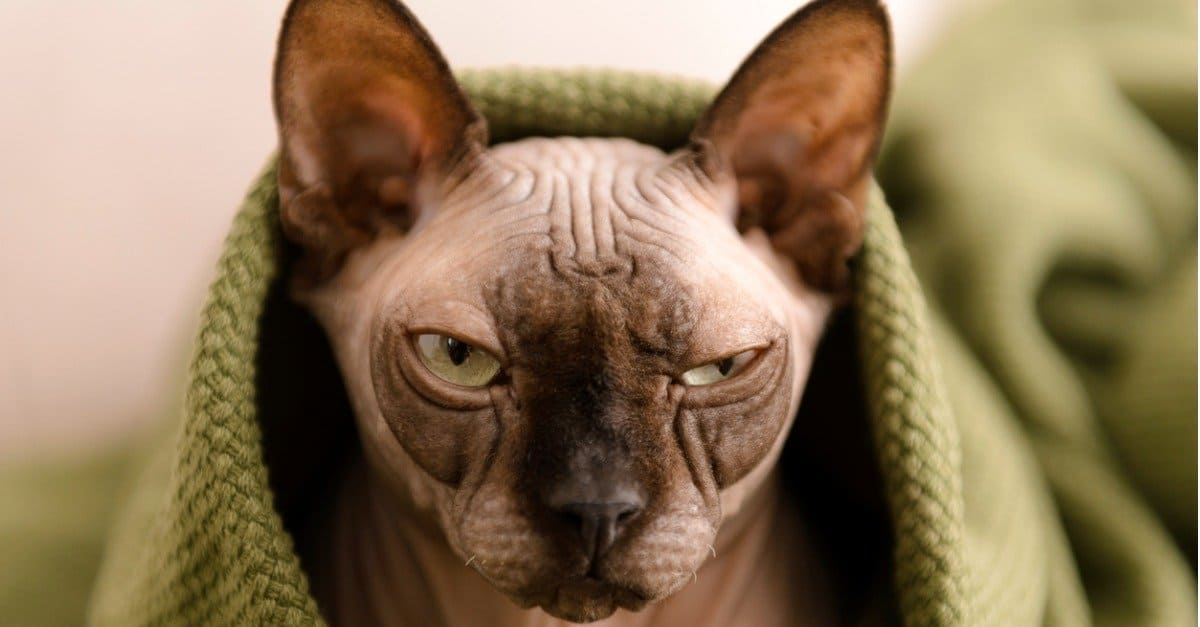
Sphynx cats don’t shed fur, but they do leave grease stains due to the oils their skin produces.
©iStock.com/ElenaBoronina
Your blankets, carpets, and furniture will become stained by the natural oils your Sphynx cat produces, as they aren’t trapped by fur like in other cat breeds. These stains are typically brown and greasy and can be reduced through regular baths and skincare.
You’ll also find these greasy stains on your cat’s items, such as their bedding and clothing. You’ll end up doing a lot of extra laundry when you add a Sphynx to the family!
#3: They Need Regular Baths and Skincare
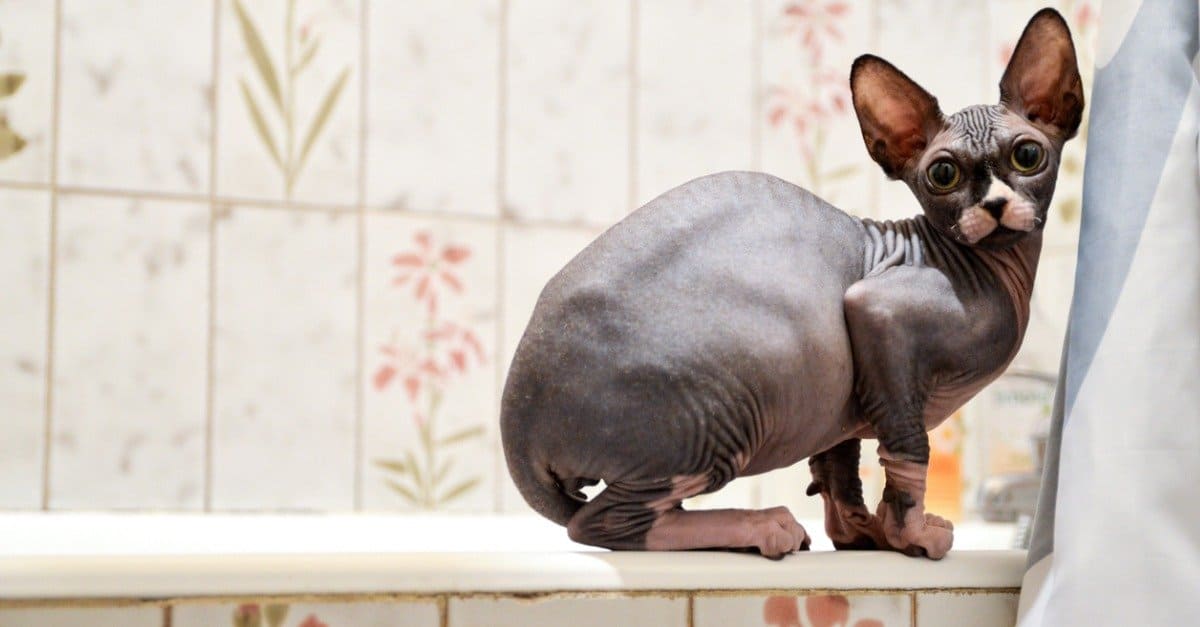
While most cats don’t need baths, Sphynx cats need them regularly.
©iStock.com/Jpr03
Sphynx cats need regular baths where their whole bodies are cleaned with a gentle cat shampoo, including between their toes. You’ll also want to clean their ears with a pet ear-cleaning solution.
Coconut oil can be applied to the skin before baths to help soften and remove oil and debris, but don’t let your cat lick too much of it as this can cause stomach upset.
You’ll also want to purchase cat lotion made for Sphynx cats in case their skin gets dry.
#4: Sphynx Get Cold Easily
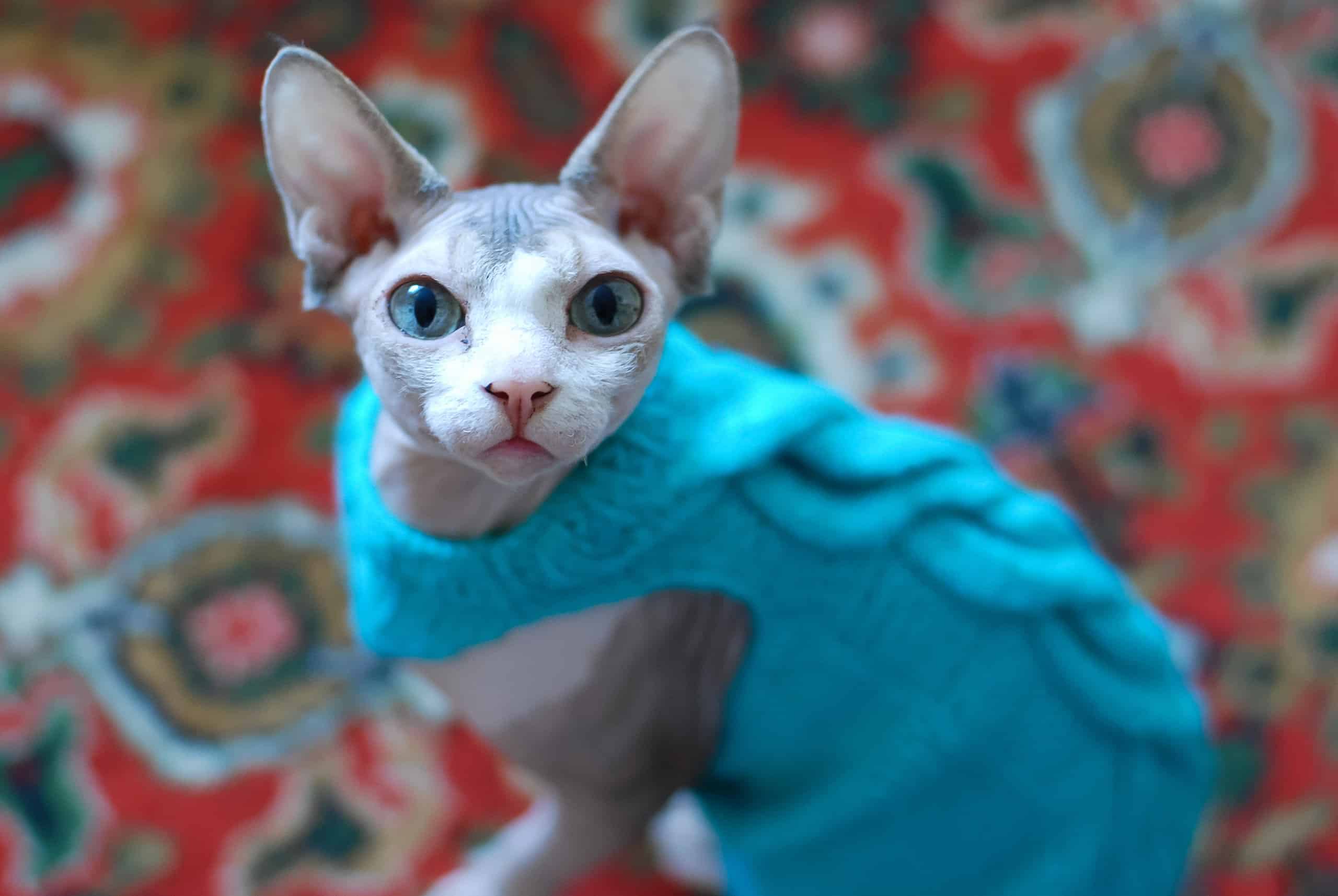
Sphynx cats often struggle to stay warm.
©iStock.com/OlgaChan
Your Sphynx cat will likely need sweaters to keep them warm, especially if your house gets chilly in the winter months. Sphynx cats get cold much easier than cats with fur.
Provide them with plenty of cozy, warm sleeping spots like cat beds and blankets, and keep the heat turned up.
While Sphynx cats can go outside in a catio (cat patio) or on a harness (never free-roaming!), you may want to limit these outdoor adventures in the winter. It’s also okay to leave it up to your cat–they’ll often tell you by turning right around at the sight of snow!
#5: They Eat More than Other Cats
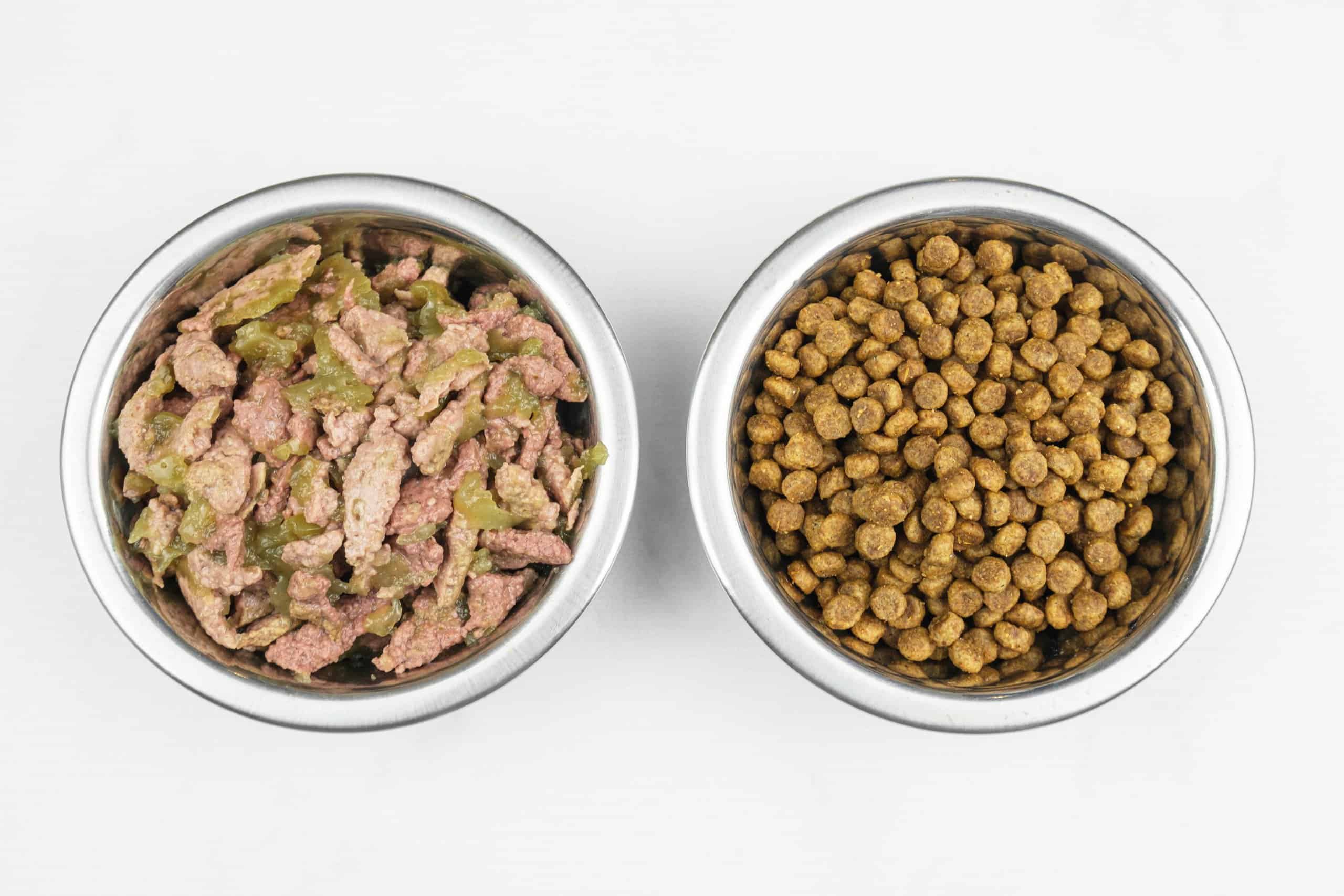
While you don’t want to overfeed them, Sphynx cats need more food than your average kitty.
©Galina-Photo/Shutterstock.com
Sphynx cats have fast metabolisms that help to keep them warm without fur. This means they eat quite a bit more than other cats.
It’s also widely agreed that Sphynx have sensitive stomachs and require high-quality cat food, though what type of food they need is debated.
Many people online suggest feeding your Sphynx a raw diet, but it’s important to note that the Federal Department of Agriculture (FDA) and American Veterinary Medical Association (AVMA) both recommend against this. You should make all decisions regarding your cat’s diet alongside a trusted veterinarian.
The three brands most recommended by vets are Purina Pro Plan, Hills Science Diet, and Royal Canin.
You may need to try various foods until you find one that agrees with your Sphynx’s stomach and doesn’t trigger any allergies they may have.
#6: They Need to Live with Other Kittens
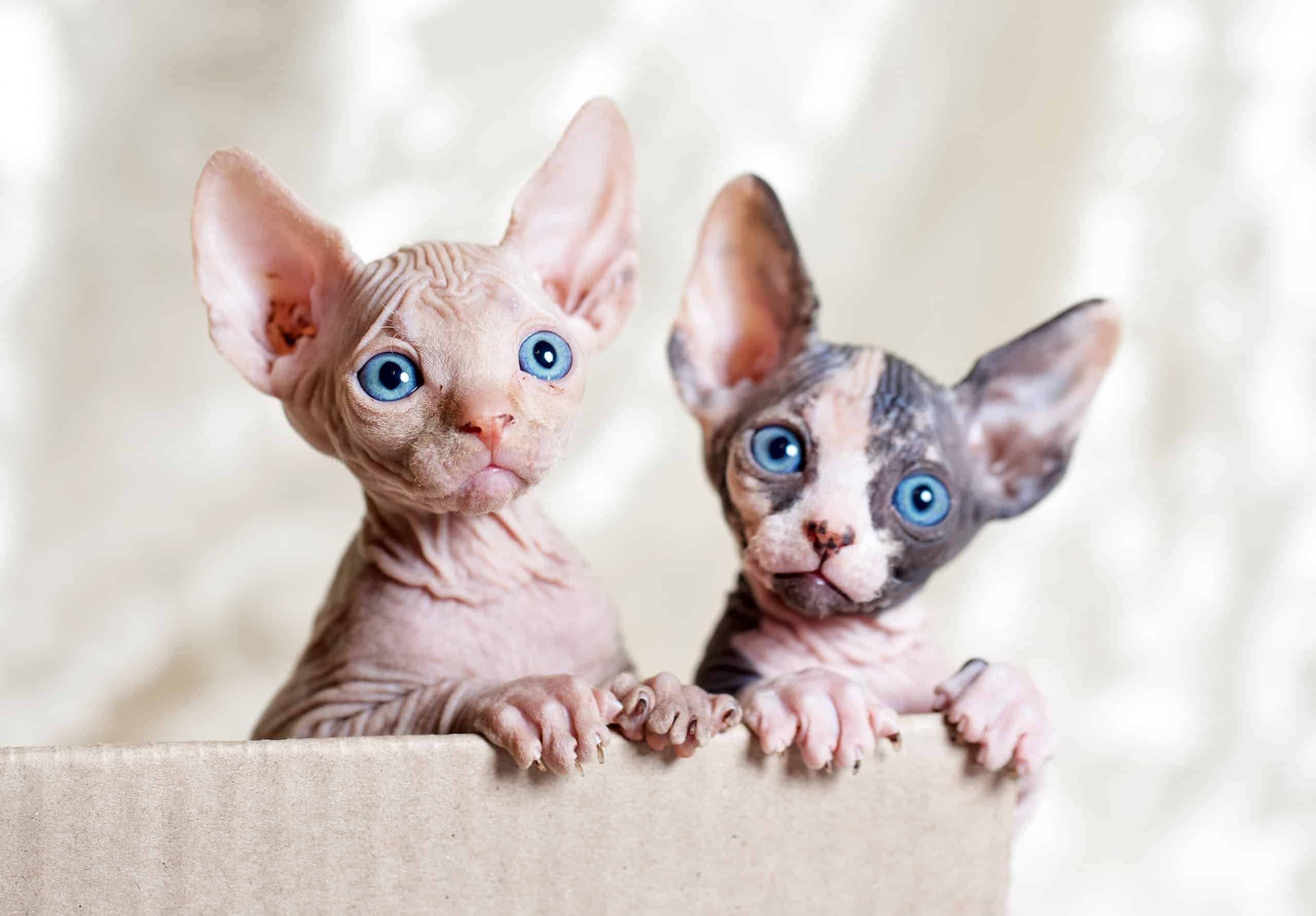
You’re likely to see behavioral problems and stress in a kitten raised without others.
©David Tadevosian/Shutterstock.com
Kittens should never be adopted alone. Ideally, they should be adopted with a littermate. You can also adopt two kittens of the same age and introduce them slowly to one another.
This prevents single kitten syndrome and isolation anxiety, the latter of which Sphynx seem especially prone to.
Kittens in single-cat homes are more prone to litter box issues, hard biting, and other poor behavior. Cats are social animals who typically do best with companionship from others of their species!
#6: They’re Expensive Pets
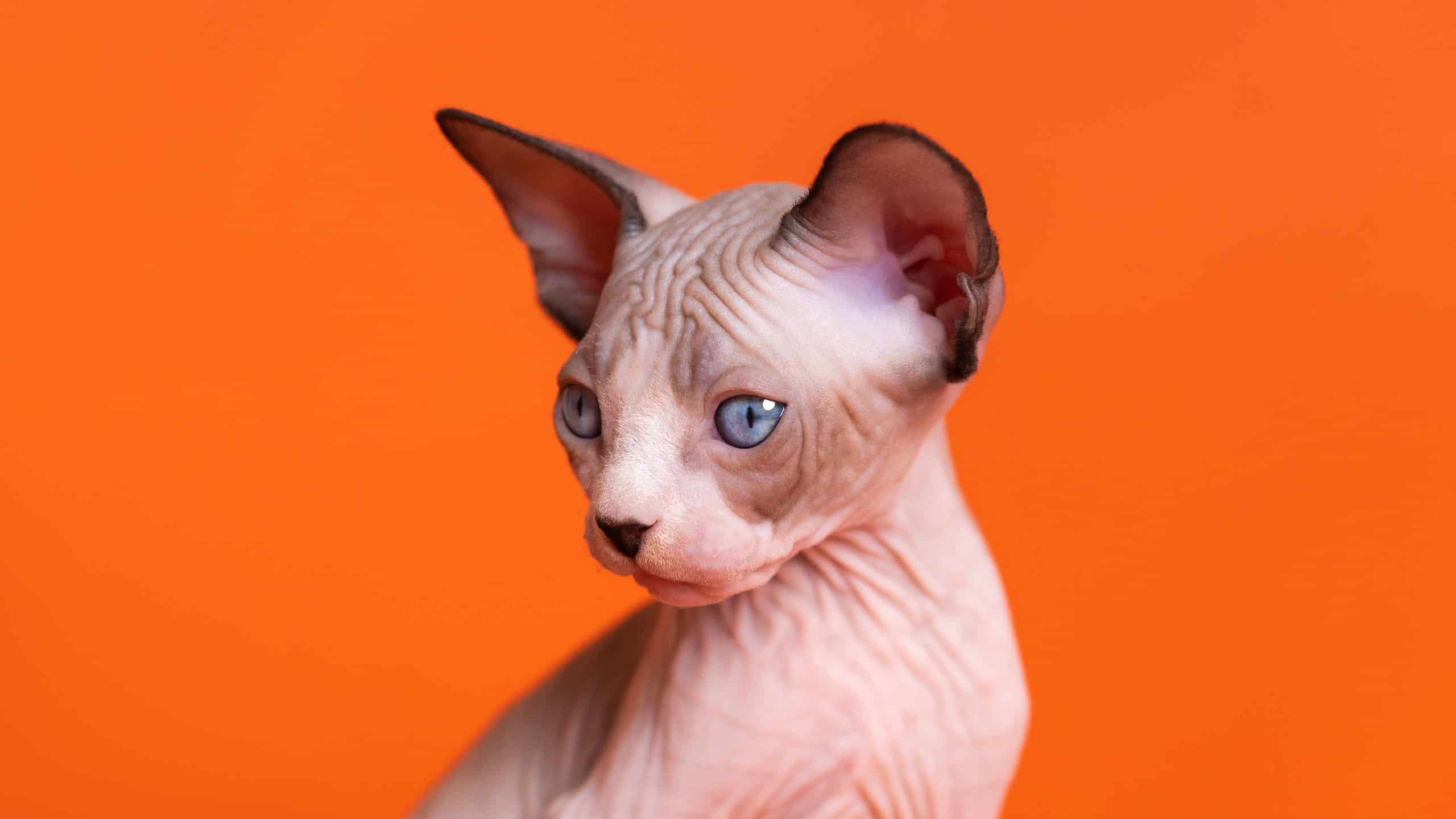
Reputable breeders tend to charge a lot for Sphynx kittens.
©iStock.com/geyzer
Another common complaint about Sphynx cats is that they’re expensive to adopt, costing thousands of dollars from reputable breeders. They’re also more expensive to feed since they eat more than your average cat.
Specialized care for your Sphynx, such as bathing, skincare, and laundry to remove grease stains will also add to your budget.
They can also have high vet bills, especially if they’ve been poorly bred. When adopting a Sphynx, or any pet, you should either have a large savings account for their veterinary needs or immediately purchase pet insurance.
#7: Sphynx Cats are Prone to Health Problems
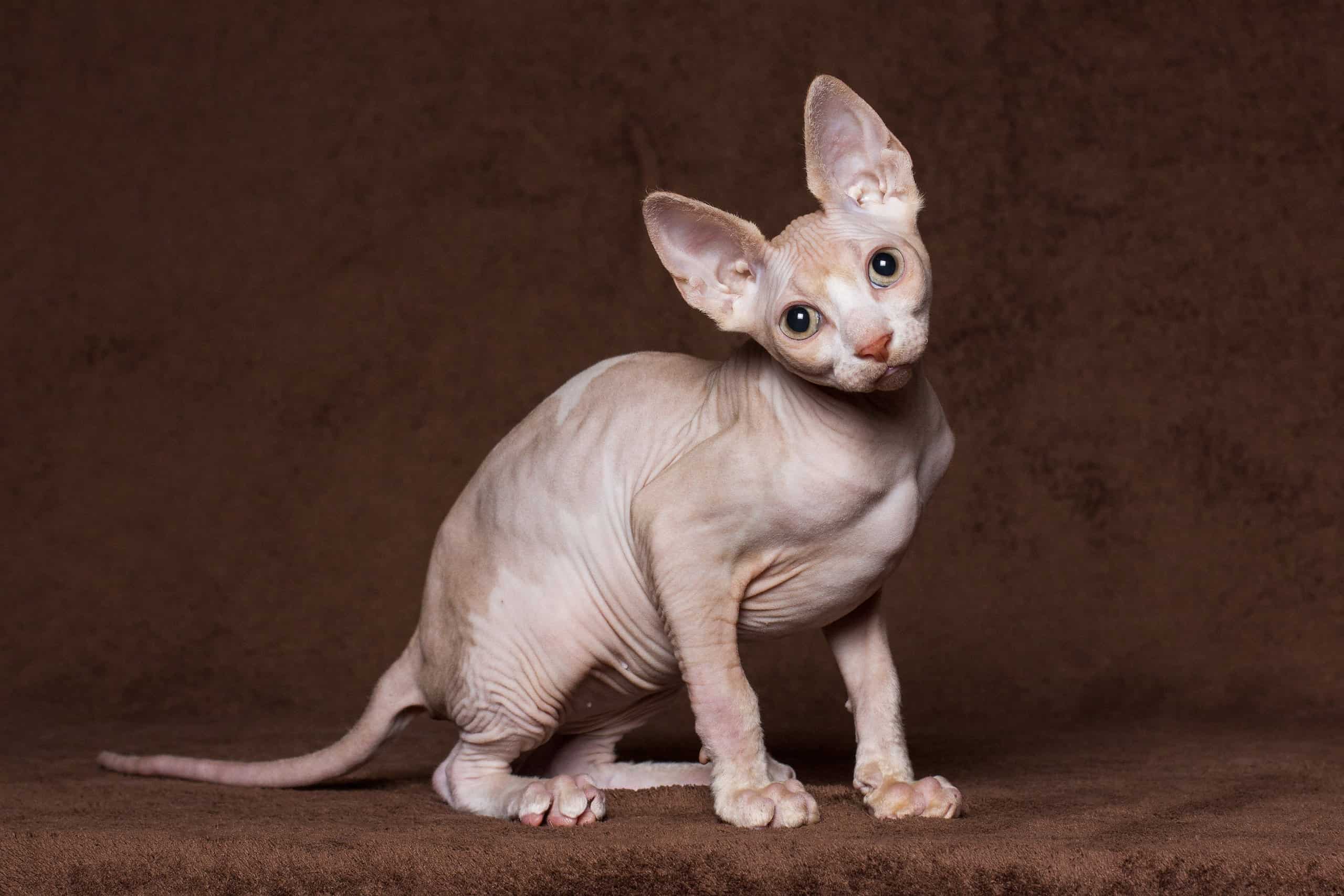
Like every breed, Spynx are prone to a number of genetic health problems.
©Sviatoslav_Shevchenko/Shutterstock.com
Sphynx cats are prone to health problems due to their breeding. Some of these can be avoided by a reputable breeder, while others are just inherent to the breed.
Some common health concerns to look for include:
- Stomach issues and diarrhea
- Allergies
- Skin problems
- Ear infections
- Respiratory infections
- Heart disease
- Dental disease
Only adopt from reputable breeders who screen for genetic health issues, provide you with test results for both parents, and provide their veterinarian as a reference.
Or, you may rarely find a Spynx cat in a local shelter or rescue for adoption. These cats’ health isn’t guaranteed, and they’re almost certainly from kitten mills or backyard breeders. However, you won’t be directly supporting that breeder by rescuing a cat.
The photo featured at the top of this post is © David Tadevosian/Shutterstock.com
Thank you for reading! Have some feedback for us? Contact the AZ Animals editorial team.







